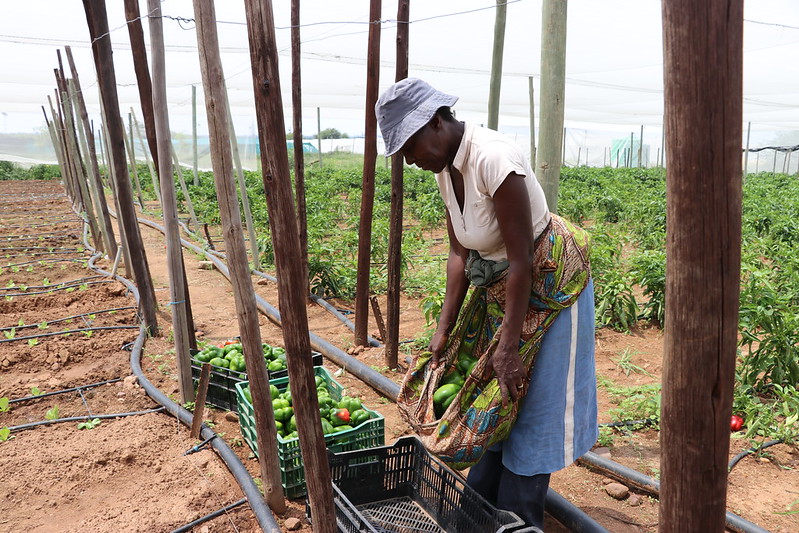Innovative Ways to Tackle Food Insecurity in Botswana
 Located in the centre of Southern Africa, Botswana has become one of the fastest-growing economies. It is now considered an upper-middle-income country, aspiring to soon become a high-income country. Despite this, although its population is small, approximately 2.5 million people, it is one of the most unequal countries in the world. The World Food Programme (WFP) estimated that food insecurity in Botswana affects 22% population that experiences moderate or severe food insecurity across the country. This is particularly felt in rural areas, with high poverty rates and limited access to fertile land.
Located in the centre of Southern Africa, Botswana has become one of the fastest-growing economies. It is now considered an upper-middle-income country, aspiring to soon become a high-income country. Despite this, although its population is small, approximately 2.5 million people, it is one of the most unequal countries in the world. The World Food Programme (WFP) estimated that food insecurity in Botswana affects 22% population that experiences moderate or severe food insecurity across the country. This is particularly felt in rural areas, with high poverty rates and limited access to fertile land.
Alongside unreliable food chains, approximately 70% of Botswana’s landscape is made up of desert and poor soils. Collectively, this contributes to food insecurity in Botswana. Thus, since the COVID-19 pandemic, the government of Botswana has focused on building resilience in food supply chains and domestic production, to improve food security across the country. Addressing food insecurity in Botswana has become a national priority, especially given the increasing vulnerability of the land to natural disasters such as droughts. It is crucial to use innovative solutions to promote food security for their population.
Project Anton Technology
Anton Tech has grown to become an AI research start-up, aiming to transform Botswana’s agriculture industry. It directly addresses the looming threat of food insecurity across the country. The project uses image data, from drones to satellites to cameras, to detect pests and diseases. It can also predict soil organic carbon levels, in turn giving recommendations on the treatments and interventions needed. Additionally, Project Anton uses WhatsApp and Facebook Messenger to increase its accessibility for farmers across Botswana.
Climate-Smart Agriculture
Climate-smart agriculture includes weather forecasting apps and satellite imagery, which can assist in analyzing weather patterns and social moisture levels. The International Institute of Tropical Agriculture collaborated with the Botswana Ministry of Agriculture to assist local farmers in climate-smart practices. This led to a 30% crop yield increase for small-scale farmers, according to the African Leadership Magazine.
Furthermore, another climate-smart agriculture technology includes the practice of zero tillage. This is a way to conserve soil carbon, soil structure and moisture. This sustainable management of soil resources has improved crop yields. In the long term, this technology has encouraged farmers to innovatively repurpose their old plows into ripper tools.
Bushvet
Across Botswana, veterinary health services are accessible and efficient. The geography of Botswana often made it difficult for rural cattle to access animal health services. Thus, the Botswana Agricultural Marketing Board initiated the “Bushvet” call-out service, providing farmers with on-farm veterinary services. Additionally, many retired veterinary paraprofessionals could support in delivering basic services such as animal drugs and advisory support. This means Bushvet can operate at a community level, increasing the long-term sustainability of this programme, as well as ensuring peak cattle health for farmer’s businesses.
Capacity Building and Knowledge Bridging
Educational online platforms post up-to-date agricultural techniques, the best practices for pest control, and general market information, and much more. This information is invaluable to farmers across Botswana, bridging their knowledge gap. UShare is a social media platform specifically for farmers, allowing them to exchange knowledge, ask questions, and vitally, connect to experts in the field, according to the African Leadership Magazine.
Tackling Food Insecurity in Botswana
The future of the country’s food security is filled with an abundance of innovative and technological solutions that have the potential to successfully eradicate food insecurity in Botswana. As per Mr. Kgabeng, Co-Founder of Anton Tech, “Put it out there and continue to iterate on it, that is how we improve as innovators and drive toward a better Africa,” the U.N. reports.
– Sian Ameer-Beg
Sian is based in Durham, UK and focuses on Good News and Technology for The Borgen Project.
Photo: Flickr
